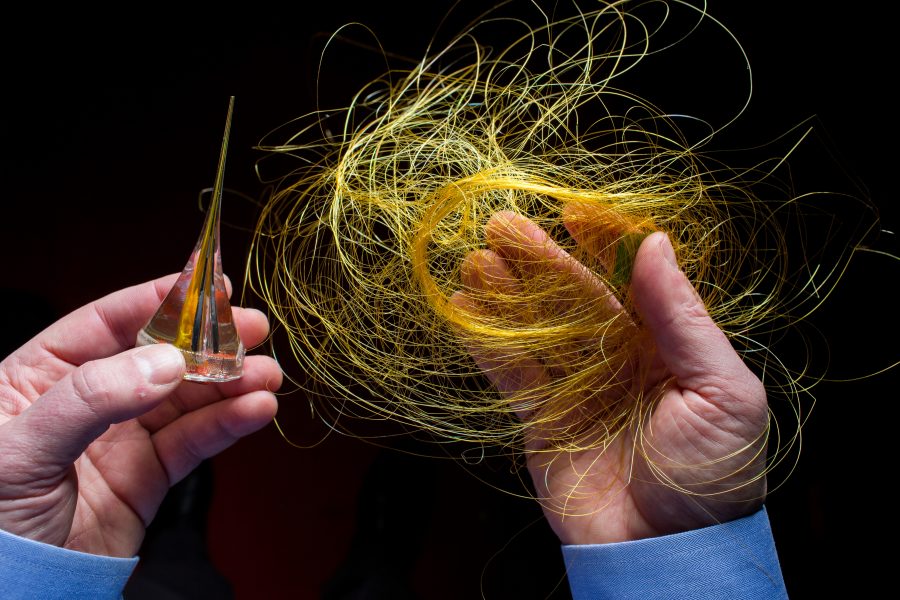College students constantly find themselves too far away from an outlet. Their cell phones slowly fade away, with no chance of coming back until they get home.
However, with future textile innovations, students could possibly charge their phones with their new, stylish hoodies.
UT-Austin is the only university in Texas to participate in a partnership called Advanced Functional Fibers of America. The main goal of the partnership is to speed up the development of high-tech fibers and textiles in the United States, according to Secretary of Defense Ashton Carter.
Carter said that these textile innovations could help the nation’s defense mission. He said that fabrics capable of generating and storing their own power could be used to make tents that regulate their inside temperature.
Carter said that uniforms with embedded electronic fibers would help detect chemical and radioactive agents. Parachutes would be able to detect small tears, which would otherwise expand mid-air and risk a paratrooper’s life.
Jonathan Chen, a professor in the department of textiles and apparel, is UT’s leading researcher in this partnership. Six other faculty members of the University, including Mourad Krifa and Bugao Xu of the department of textiles of apparel, Wei Li and Joseph Koo of the department of mechanical engineering and Ken Diller and Janeta Zoldan from the Department of Biomedical Engineering, will join him.
Chen said that the researchers have already started working on some ideas for new, eco-friendly fibers. The scientists have worked on fibers that provide people with UV and scratch protection, as well as temperature regulation. They are also creating carbon nanotubes that can improve electrical connectivity and body-scanning technology that could make up personal, form-fitting clothes.
“[We have] a kind of composite for the impact of absorptions,” Chen said. “It’s stiff, but you also have absorption capacity, … and it is natural-fiber based.”
Chen said that the military and the athletic industry would greatly benefit from this material. It could be used in helmets for football players or soldiers on the battlefield. Concussions account for 7.4 percent of all college football related injuries, but these new, lightweight materials could help reduce those numbers.
Organized by the Massachusetts Institute of Technology, the partnership consists of 52 industry members and non-profit organizations, 32 universities and five government and regional organizations that spread across 28 states. In collaboration with the Department of Defense, AFFOA will receive $75 million in federal funding over five years out of over $300 million shared amongst industrial partners, companies and the Department of Defense.
Carter said that this partnership would ensure that the development, manufacturing and commercializing of state-of-the-art materials would happen in the United States.
“We don’t know all the advances this new technology is going to make possible,” Carter said. “It’s another reason why America, and America’s military, must get there first.”
Carter said that this collaboration between universities, companies and government remind him of the teamwork that created the internet and GPS technology.
“These issues matter,” Carter said. “They have to do with our protection and our security in creating a world where our fellow citizens can go to school and live their lives, dream their dreams and one day give their children a better future.”















